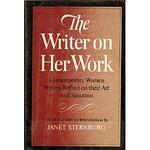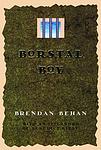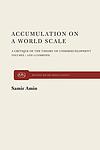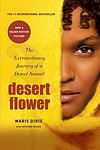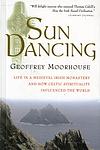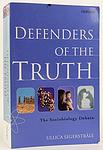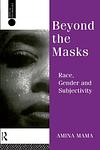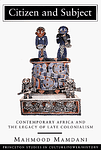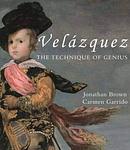The Greatest Irish, Unknown "Nonfiction" Books Since 1950
Click to learn how this list is calculated.
This list represents a comprehensive and trusted collection of the greatest books. Developed through a specialized algorithm, it brings together 300 'best of' book lists to form a definitive guide to the world's most acclaimed books. For those interested in how these books are chosen, additional details can be found on the rankings page.
Genres
Countries
Date Range
Reading Statistics
Click the button below to see how many of these books you've read!
Download
If you're interested in downloading this list as a CSV file for use in a spreadsheet application, you can easily do so by clicking the button below. Please note that to ensure a manageable file size and faster download, the CSV will include details for only the first 500 books.
Download-
1. Night by Elie Wiesel
This book is a memoir of the author's experiences during the Holocaust, specifically in the Auschwitz and Buchenwald concentration camps. The narrative focuses on the relationship between a father and son under the most extreme circumstances, the loss of faith in God, humanity, and in each other, and the horrifying reality of the systematic genocide of six million Jews during World War II. The book is a poignant and stark examination of the depths of human evil and the enduring power of hope and survival.
-
2. The Writer on Her Work by Janet Sternburg
"The Writer on Her Work" is a collection of essays by various female authors who discuss their experiences, challenges, and perspectives on writing. The book explores the complexities of being a woman in the literary world, shedding light on topics such as gender bias, the struggle for recognition, and the balance between personal life and professional aspirations. It provides a unique insight into the creative process, revealing how these women navigate their craft amidst societal expectations and personal obstacles.
-
3. Borstal Boy by Brendan Behan
"Borstal Boy" is a semi-autobiographical novel that depicts the author's experiences in a British juvenile detention center, or borstal, during World War II. The young protagonist is arrested in Liverpool for his involvement with the Irish Republican Army and is sent to borstal where he spends his formative years. The narrative explores themes of patriotism, identity, and the complexities of adolescence, presenting a raw and compelling portrayal of life in detention and the relationships formed there.
-
4. All But My Life by Gerda Weissmann Klein
"All But My Life" is a poignant memoir of a young woman's six-year ordeal as a victim of Nazi cruelty. The narrative follows her life from a peaceful, upper-middle-class childhood in Bielitz, Poland, through her horrifying experiences and loss during the Holocaust, to her miraculous survival and marriage to an American soldier. It is a story of courage, resilience, and the enduring power of hope.
-
5. E=Mc2 by David Bodanis
The book provides a layperson-friendly explanation of the world's most famous equation, delving into the history, science, and people behind its development. It explores the biographies of the scientists who contributed to our understanding of energy and mass, including the equation's originator, and the practical and philosophical implications of the equation's assertion that energy and mass are interchangeable. The narrative also discusses the equation's role in the development of atomic energy and its impact on modern physics, offering an accessible journey through the annals of scientific thought and the revolutionizing discoveries that shape our understanding of the universe.
-
6. Accumulation On A World Scale by Samir Amin
"Accumulation On A World Scale" by Samir Amin is a thought-provoking analysis of the global capitalist system and the dynamics of accumulation. Amin explores the historical development of capitalism, its inherent contradictions, and the ways in which it perpetuates inequality and exploitation on a global scale. He argues that the capitalist system is fundamentally flawed and unsustainable, offering alternative perspectives on economic development and proposing radical changes to create a more equitable and just world.
-
7. An Imagined World by June Goodfield
"An Imagined World" is a poignant exploration of the human condition, set against the backdrop of World War II. The narrative delves into the life of a young woman who, amidst the chaos and destruction of the war, finds herself in a remote English village. There, she grapples with the complexities of love, loss, and the search for personal identity. As she interacts with the villagers and refugees who have also sought sanctuary, the protagonist confronts the harsh realities of the world outside while navigating the intricate web of human relationships and the enduring hope for a better future. The book is a testament to the resilience of the human spirit and the power of imagination as a source of comfort and escape in times of turmoil.
-
8. The Padārthatattvanirūpaṇam Of Raghunātha śiromaṇi by Karl H. Potter
"The Padārthatattvanirūpaṇam of Raghunātha Śiromaṇi" is a critical examination and translation of a seminal work in Indian philosophy by Raghunātha Śiromaṇi, who was a prominent figure in the Navya-Nyāya school. This book, authored by Karl H. Potter, provides an in-depth analysis of Raghunātha Śiromaṇi's thoughts on metaphysics, focusing on the nature of reality and categorization of existence. Potter's work not only translates the original text but also contextualizes it within both historical and philosophical frameworks, offering insights into the development of Indian philosophical thought and its intricate argumentative techniques.
-
9. Averroes by George F. Hourani
This book provides a comprehensive study of Averroes, a seminal Islamic philosopher from the medieval period, known for his profound influence on both the Islamic and Christian intellectual worlds. The text delves into Averroes' life, his philosophical and theological ideas, and particularly his commentaries on Aristotle, which played a crucial role in shaping medieval scholasticism. The author explores how Averroes' attempts to harmonize philosophy with Islamic theology sparked significant debates and how his ideas were received, critiqued, and integrated into European thought, thereby leaving a lasting legacy on the development of Western philosophy and science.
-
10. The Samaritan Treasure by Marianne Luban
"The Samaritan Treasure" is an intriguing historical novel that delves into the ancient world, weaving a tale of mystery and adventure around the biblical account of the Good Samaritan. The narrative follows an archaeologist who stumbles upon a clue to the legendary treasure of the Samaritans, leading to a thrilling quest that spans continents and centuries. As the protagonist deciphers ancient texts and navigates dangerous liaisons, the story explores themes of faith, cultural heritage, and the enduring allure of hidden riches. The novel is a blend of meticulous historical research and imaginative storytelling, offering readers a captivating journey through time and the human spirit's quest for discovery.
-
11. Desert Flower by Waris Dirie, Cathleen Miller
"Desert Flower" is a powerful autobiography that tells the story of a girl born into a nomadic tribe in the Somali desert. The girl, subjected to the brutal tradition of female genital mutilation at a young age, escapes an arranged marriage at 13 and ends up in London, where she works various jobs before being discovered as a model. Her rise to fame in the fashion industry is juxtaposed with her personal journey to raise awareness about the harmful cultural practice she endured and advocate for its eradication.
-
12. The Man Who Loved Only Numbers by Paul Hoffman
"The Man Who Loved Only Numbers" is a captivating biography that delves into the life of a brilliant mathematician. From his early years as a child prodigy to his groundbreaking contributions in number theory, the book explores the eccentricities and obsessions that consumed his life. With a unique blend of mathematical concepts and personal anecdotes, the biography paints a vivid portrait of a man who was truly devoted to the world of numbers.
-
13. Sun Dancing by Geoffrey Moorhouse
"Sun Dancing" presents a vivid tapestry of medieval Irish monasticism, combining historical facts with imaginative storytelling. The book delves into the austere and spiritually intense lives of monks on Skellig Michael, a remote island off the Irish coast, during the early centuries of Christianity in Ireland. Through a blend of narrative and analysis, the text explores the harsh realities of monastic life, the cultural and religious contributions of these communities, and the broader context of Irish and European history during this period. The author weaves together the daily routines, spiritual practices, and legendary tales of these monks, providing a window into a world where faith and endurance converge amidst the isolation of the Atlantic Ocean.
-
14. Why Not Me? by Wendy L. Bovard
"Why Not Me?" is a poignant memoir that delves into the author's personal journey through adversity and resilience. It explores the challenges faced when life takes unexpected turns, such as dealing with illness, loss, and the search for self-identity. The narrative is a testament to the human spirit's capacity to overcome obstacles and find meaning in the face of hardship. With honesty and vulnerability, the author shares her experiences, offering insights and inspiration to others who may be navigating their own paths through difficult times, ultimately asking the universal question of why some are chosen to endure certain trials and how they can emerge stronger.
-
15. Defenders Of The Truth by Ullica Segerstrale
This book provides a comprehensive examination of the sociobiology debate, a contentious discussion that emerged in the 1970s and 1980s regarding the application of evolutionary theory to human behavior. It delves into the intellectual clash between prominent scientists and scholars, exploring the ideological, academic, and political tensions that fueled the debate. The narrative not only charts the historical development and key arguments of both sides but also scrutinizes the broader implications of this debate for the scientific community and society at large. Through detailed analysis and interviews, the work sheds light on the complexities of scientific discourse, the role of science in society, and the intricate interplay between scientific inquiry and ethical considerations.
-
16. Selected Stories by William Trevor
"Selected Stories" is a collection of short stories by acclaimed author William Trevor. The book features some of Trevor's most memorable and haunting tales, exploring themes of love, loss, and the complexities of human relationships. With his signature style of understated elegance and quiet, observant prose, Trevor creates characters that are both ordinary and extraordinary, capturing the subtle nuances of their lives and the emotions that drive them. From the Irish countryside to London's bustling streets, these stories offer a glimpse into the human experience and the ways in which we navigate the world around us.
-
17. Beyond The Mask, Race, Gender And Identity by Amina Mama
In this thought-provoking book, the author delves into the complex intersections of race, gender, and identity. Through a combination of personal narratives, historical analysis, and social theory, Mama explores how these constructs shape and influence our lives. She challenges conventional ideas and offers a critical examination of power dynamics, highlighting the ways in which race and gender intersect to create unique experiences and oppressions. With a focus on African women's experiences, Mama calls for a reimagining of identity that goes beyond simplistic categorizations, and instead embraces the complexity and fluidity of human existence.
-
18. Citizen And Subject by Mahmood Mamdani
"Citizen and Subject" explores the complex relationship between citizenship and identity in postcolonial Africa. The author critically examines the concept of citizenship as a tool for exclusion and domination, particularly in the context of colonial and postcolonial states. Through a comprehensive analysis of case studies from Uganda and South Africa, Mamdani delves into the historical processes that have shaped the formation of citizenship and subjecthood, shedding light on the enduring legacies of colonialism and the challenges faced by marginalized groups in attaining full citizenship rights.
-
19. Kiswahili, Past, Present And Future Horizons by Rocha Chimera
"Kiswahili, Past, Present And Future Horizons" explores the rich history, current state, and potential future of the Kiswahili language. The book delves into the origins and development of Kiswahili, highlighting its significance as a lingua franca in East Africa. It examines the language's role in literature, education, and communication, while also addressing the challenges and opportunities it faces in a rapidly changing global landscape. Through insightful analysis and compelling examples, the author presents a comprehensive overview of Kiswahili's past achievements and its promising prospects for continued growth and influence.
-
20. We Don’t Know Ourselves by Fintan O'Toole
"We Don't Know Ourselves" by Fintan O'Toole is a collection of essays that explores the current state of Ireland and its people. O'Toole argues that Ireland's sense of identity has been shaped by its history of colonization and the struggle for independence, but that this identity is now being challenged by globalization and the changing social and economic landscape. He examines issues such as immigration, the Catholic Church's declining influence, and the rise of nationalism, and ultimately argues that Ireland needs to embrace a new sense of identity that is inclusive and forward-thinking.
-
21. The Sense Of An Ending by Frank Kermode
In "The Sense of an Ending," the author delves into the ways in which humans impose artificial structures and narratives on life's chaos to create a sense of order and meaning. The work explores our perception of time and our incessant need to segment it into beginnings, middles, and ends, much like the structure of a conventional story. By examining various literary and philosophical traditions, the text reveals our collective desire for resolution and how this shapes our understanding of history and our personal lives. The author argues that while this narrative ordering is a natural human impulse, it often leads to simplified and distorted perceptions of reality.
-
22. A Fanatic Heart by Edna O'Brien
"A Fanatic Heart" is a collection of short stories that delve into the complexities of human emotions and relationships, often set against the backdrop of Ireland's lush landscapes and social upheavals. The narratives explore themes of love, betrayal, and the struggles of the human spirit through a variety of characters, from young girls to aging men, each grappling with their own desires, regrets, and search for meaning. The author's lyrical prose and keen insight into the intricacies of the heart and society weave together tales that are both poignant and revealing, offering a window into the soul of her characters and the cultural tensions of the time.
-
23. All Fall Down by America's Tragic Encounter with Iran
"All Fall Down" explores the complex and tumultuous relationship between the United States and Iran, focusing particularly on the events leading up to and following the 1979 Iranian Revolution. The book delves into the historical, political, and social factors that contributed to the fall of the Shah, the rise of Ayatollah Khomeini, and the subsequent severing of diplomatic ties between the two nations. Through a detailed narrative, it examines the misunderstandings, missteps, and conflicts that characterized the U.S.-Iran relationship, shedding light on the broader implications for Middle Eastern politics and U.S. foreign policy.
-
24. Velazquez by Jonathan Brown
This book provides a comprehensive analysis of Diego Velázquez, one of the foremost figures of the Spanish Golden Age of painting. The author delves into Velázquez's life, exploring his rise from a young Sevillian artist to becoming the leading painter at the court of King Philip IV, and ultimately his influence on the development of Western art. Through detailed examination of his major works, the book highlights Velázquez's mastery of technique, his innovative use of light and shadow, and his ability to convey complex human emotions, which positioned him as a pivotal artist who transformed the genre of portraiture and had a lasting impact on European art.
-
25. Poems Of Paul Muldoon by Paul Muldoon
This collection showcases the work of a contemporary poet known for his wit, wordplay, and innovation in form and technique. The poems span a variety of themes, from personal reflection to broader cultural commentary, often with a sense of the historical and mythical interwoven with the everyday. The poet's Irish heritage and experiences inform much of his work, which is characterized by its musicality, linguistic dexterity, and a playful yet profound engagement with language. The collection serves as a testament to the poet's reputation as a master craftsman of verse, capable of both depth and lightness, with a distinctive voice that has influenced modern poetry.
Reading Statistics
Click the button below to see how many of these books you've read!
Download
If you're interested in downloading this list as a CSV file for use in a spreadsheet application, you can easily do so by clicking the button below. Please note that to ensure a manageable file size and faster download, the CSV will include details for only the first 500 books.
Download
